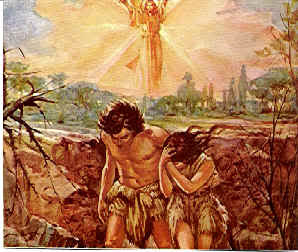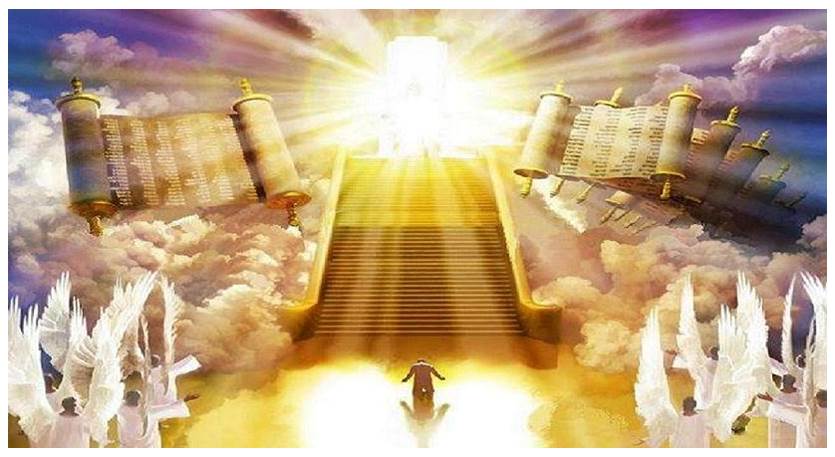The standard answer to this question, from many Christians, is that we enjoy God through prayer, worship, and Bible study. And, those things are definitely important ways to enjoy God. But there is more.
God has given mankind numerous gifts, through his creation (the physical universe and everything in it), that we are meant to enjoy. When we enjoy the gifts God has given us, when we remember that they are his gifts, and when we thank him for those gifts, we are surely enjoying God in a way that pleases him.
Having said that, we all know that there are millions of people who enjoy God’s gifts, but who fail to acknowledge that they are gifts at all. They are like a child who receives a new toy at Christmas, and then plays with the toy for months and never once thinks about who gave it to her.
So what is the proper way to think about enjoying God through his gifts? How do we keep the focus on the giver without taking Him for granted? Randy Alcorn offers some helpful insights in his book Heaven.
Suppose you’re sick. Your friend brings a meal. What meets your needs— the meal or the friend? Both. Of course, without your friend, there would be no meal; but even without a meal, you would still treasure your friendship. Hence, your friend is both your higher pleasure and the source of your secondary pleasure (the meal). Likewise, God is the source of all lesser goods, so that when they satisfy us, it’s God himself who satisfies us. (In fact, it’s God who satisfies you by giving you the friend who gives you the meal.)
Some Christians frown upon the pleasures of the physical world, but Alcorn argues this is unbiblical.
Scripture says we are to put our hope not in material things but “in God, who richly provides us with everything for our enjoyment” (1 Timothy 6:17). If he provides everything for our enjoyment, we shouldn’t feel guilty for enjoying it, should we?
Paul says it is demons and liars who portray the physical realm as unspiritual, forbid people from the joys of marriage, including sex, and “order them to abstain from certain foods, which God created to be received with thanksgiving by those who believe and who know the truth. For everything God created is good, and nothing is to be rejected if it is received with thanksgiving, because it is consecrated by the word of God and prayer” (1 Timothy 4:3-5).
Alcorn continues:
God isn’t displeased when we enjoy a good meal, marital sex, a football game, a cozy fire, or a good book. He’s not up in Heaven frowning at us and saying , “Stop it— you should only find joy in me.” This would be as foreign to God’s nature as our heavenly Father as it would be to mine as an earthly father if I gave my daughters a Christmas gift and started pouting because they enjoyed it too much. No, I gave the gift to bring joy to them and to me— if they didn’t take pleasure in it, I’d be disappointed. Their pleasure in my gift to them draws them closer to me. I am delighted that they enjoy the gift.
Alcorn warns us:
Because of the current darkness of our hearts, we must be careful not to make idols out of God’s provisions. . . . Of course, if children become so preoccupied with the gift that they walk away from their father and ignore him, that’s different. Though preoccupation with a God-given gift can turn into idolatry, enjoying that same gift with a grateful heart can draw us closer to God.
In part 2, we’ll continue to look at the proper ways to enjoy God through his creation.
 In the Book of Genesis we read that after Adam and Eve sinned against God, God pronounced a curse on them and all creation. “Cursed is the ground [earth] because of you” (Genesis 3: 17). Mankind would be subject to “painful toil” among “thorns and thistles.” After a difficult life, men and women would die, returning to the ground from which they were made.
In the Book of Genesis we read that after Adam and Eve sinned against God, God pronounced a curse on them and all creation. “Cursed is the ground [earth] because of you” (Genesis 3: 17). Mankind would be subject to “painful toil” among “thorns and thistles.” After a difficult life, men and women would die, returning to the ground from which they were made. Many Christians believe the answer to this question is “no.” Of course, they would be wrong. The New Testament clearly claims that all people, believers and unbelievers, are judged for their works after they die. Randy Alcorn, in his book
Many Christians believe the answer to this question is “no.” Of course, they would be wrong. The New Testament clearly claims that all people, believers and unbelievers, are judged for their works after they die. Randy Alcorn, in his book  According to author Randy Alcorn, in his book
According to author Randy Alcorn, in his book  Perhaps you’ve heard the saying, “Christians are so heavenly minded they’re no earthly good.” The idea behind this statement is supposed to be that Christians are content to leave the world the way it is because we are simply biding our time here so that we can get to our final destination, Heaven. It’s only those people who don’t believe in Heaven that will do the hard work to improve the Earth, because Earth is all there is.
Perhaps you’ve heard the saying, “Christians are so heavenly minded they’re no earthly good.” The idea behind this statement is supposed to be that Christians are content to leave the world the way it is because we are simply biding our time here so that we can get to our final destination, Heaven. It’s only those people who don’t believe in Heaven that will do the hard work to improve the Earth, because Earth is all there is.